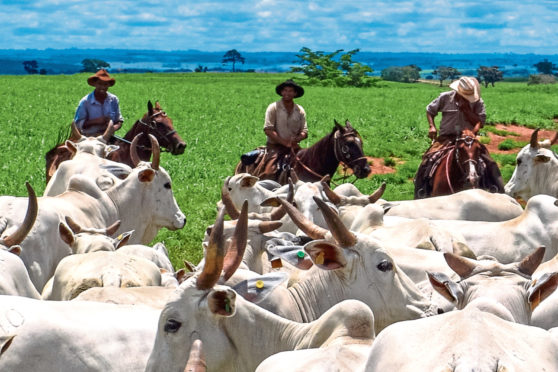The election campaign has forced agriculture off the political agenda.
There will be no progress on a new post-Brexit farm support policy before January, at best, after a new government is up and running.
Prime Minister Boris Johnson keeps emphasising that Brexit is about the ability to make “free trade deals” as opposed to just trade deals with countries outside the EU.
For farming this can only mean cheap food imports, which would undermine both standards and prices.
They would also make a free trade deal with the EU27 more difficult, because of concerns about products being re-exported from third countries through the UK.
Time may prove the big difference between reality and pre-election promises, given the UK’s most crucial trade relationship will be with the EU.
Phil Hogan, the incoming EU trade commissioner and a long time critic of Brexit, has said UK consumers will expect EU food standards after it leaves the EU. Speaking in Ireland, he said consumers in Britain would expect their government to sign up to EU environmental, labour and food standards as part of a free trade agreement.
He was optimistic that a deal would be possible, claiming negotiations could begin by mid-March.
This would leave just nine months to complete a complex deal if the new government wants to limit to December 2020, the transition period for leaving the EU.
Hogan stressed that negotiations were not about starting from scratch, given the UK’s 45 years trading relationship with the EU. He added that the negotiation would progress more quickly if the present government is returned and its withdrawal deal is signed off by the end of January.
Meanwhile, Brazil has had its meat industry fortunes boosted with China and Saudi Arabia approving more meat plans for export. China alone approved 13 this week.
European Commission plans to make Europe less dependent on imported soya for livestock feed were blown off course. According to a report, the self-sufficiency level which also includes protein from forage, fell from 80% to 77% in 2018-19. This was directly down to the impact of drought conditions.
It prompted an increased reliance on imported soya, with the US pushing Brazil off the top spot as he biggest supplier. The EU remains only 26% self-sufficient in oilseeds, mainly soya, and despite ambitious plans to increase production this will not change quickly.
Even if the EU doubled soya production over the next decade it would remain dependent on imports.
Meanwhile reports have emerged of winter crop plantings being delayed because of rain, with the problem most acute in the UK.










